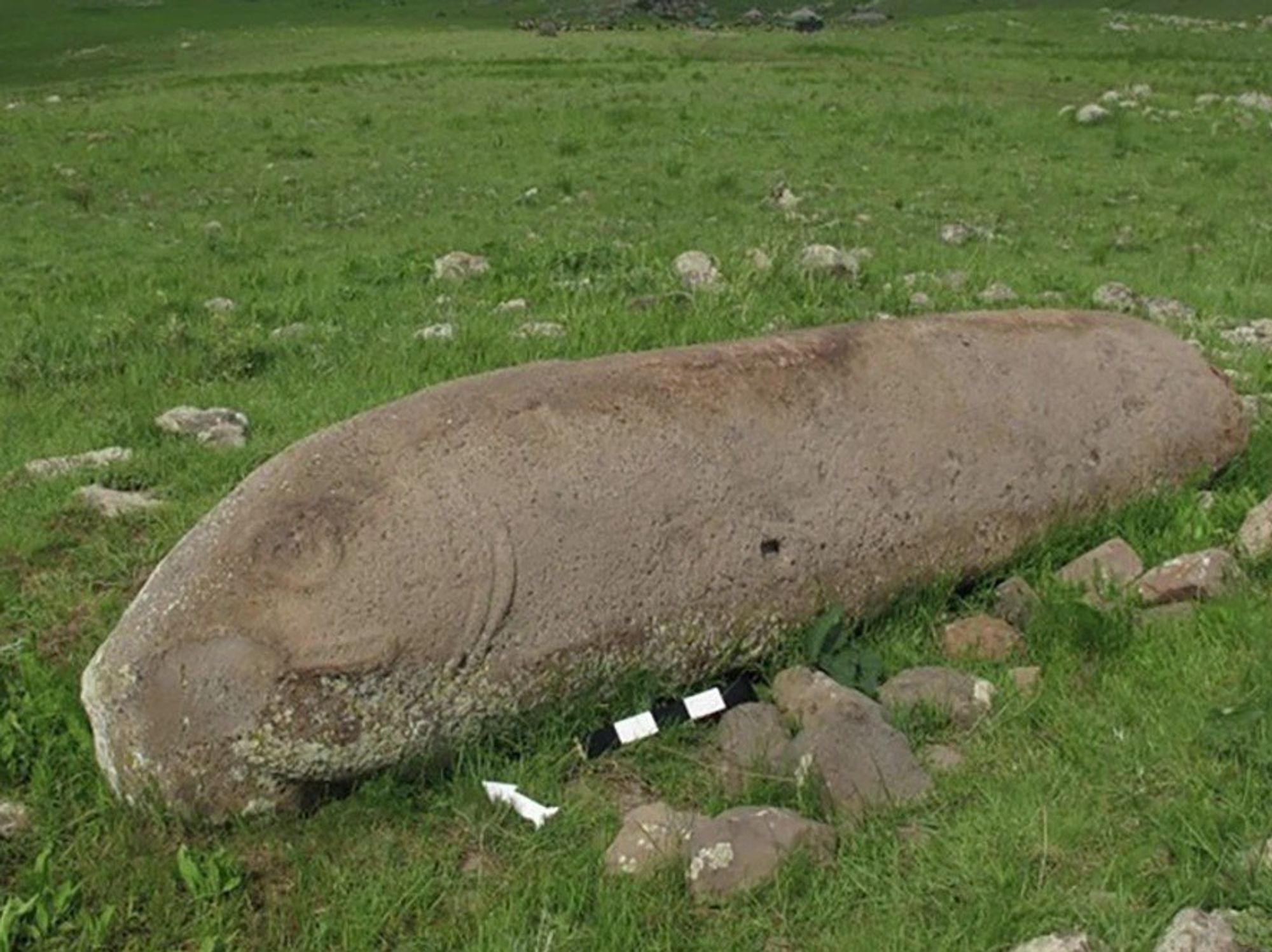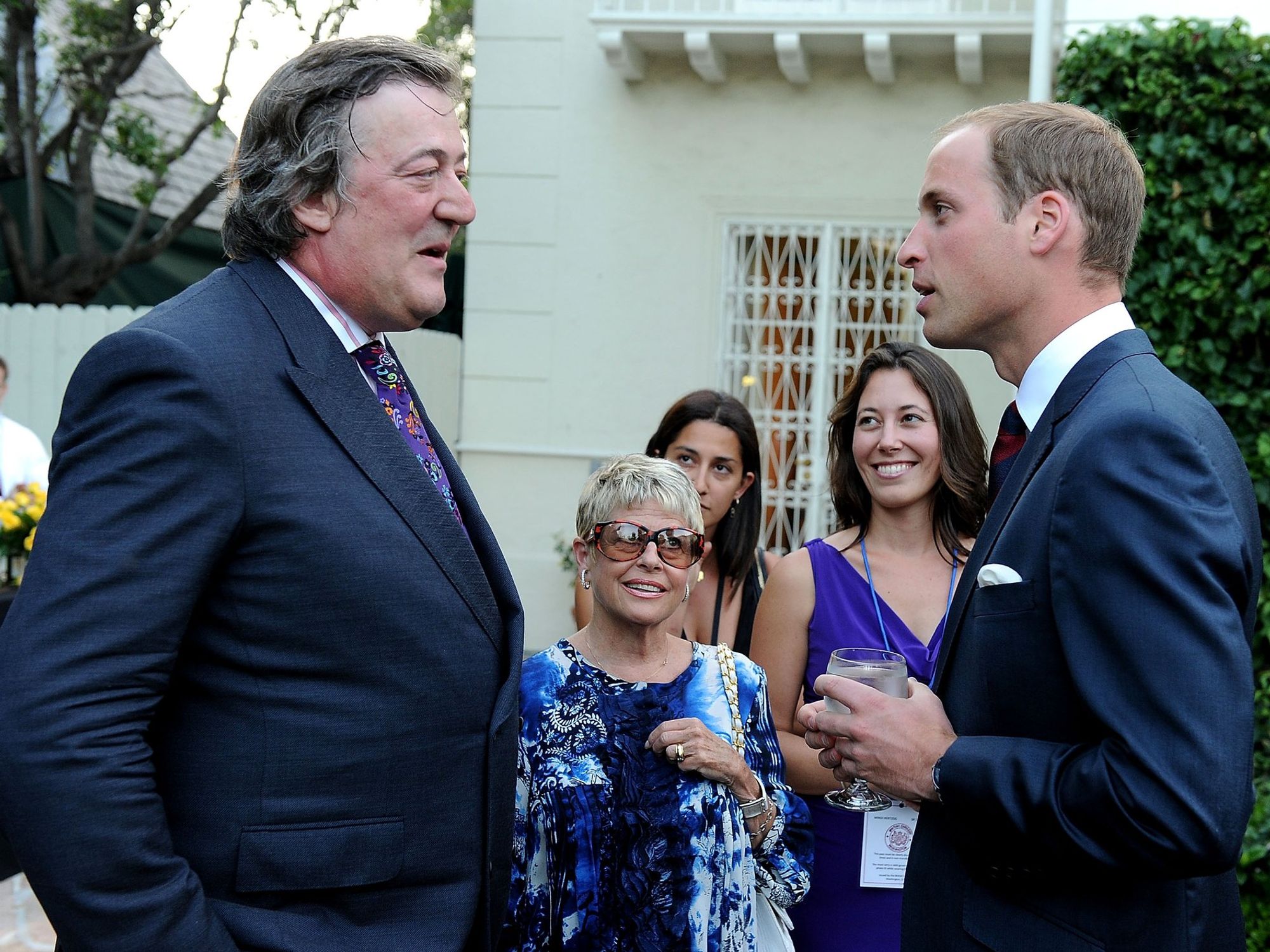'We NOT racist' How Ireland is proving a HUGE lesson for Britain when it comes to uncontrolled migration

A battle for the heart and soul of a nation is currently being fought. GB News reports from the frontlines
Don't Miss
Most Read
Knock in County Mayo, Ireland is regarded as a spiritual home of Catholicism.
The Irish name for the village is Cnoc Mhuire, which means "Hill of the Virgin Mary".
Its significance as a major pilgrimage site dates back to August 21, 1879, when locals claimed to have seen an apparition of the Virgin Mary, Saint Joseph, Saint John the Evangelist, angels, and Jesus Christ.
Knock Shine was built in the village to commemorate the event. The sprawling grounds boast an impressive five churches, including the Basilica of Our Lady, Queen of Ireland, with its towering spire visible from the Western skyline.
The holy site attracts more than one million visitors annually. Over the last year, however, there has been talk of new arrivals - and they are not so welcome.
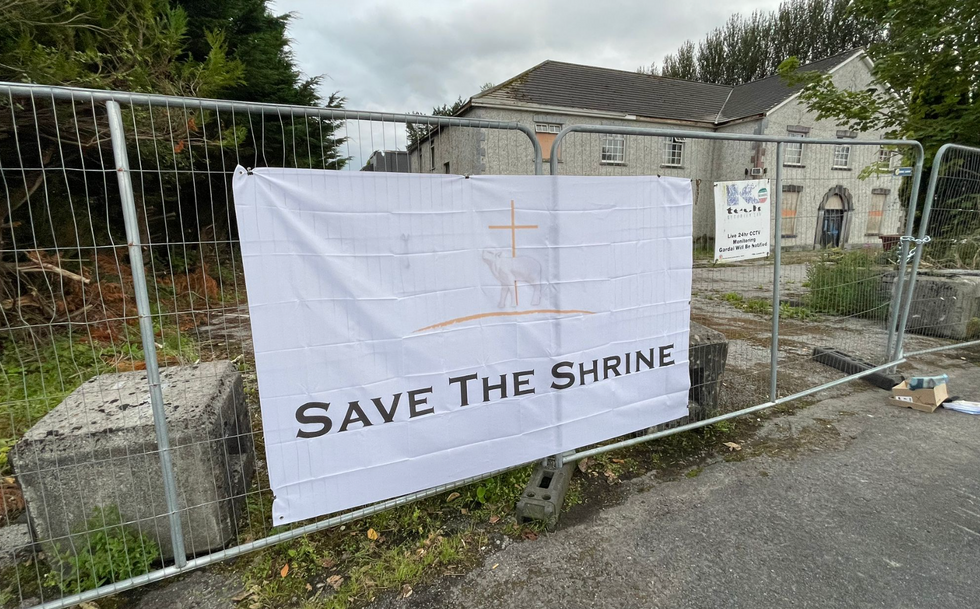
Since its closure in 2010, speculation has swirled over what would become of the Belmont Hotel
|Citizens Concerns Ireland
In June, it was confirmed that the government had offered to turn a disused hotel, located just five minutes outside the village, into an International Protection Accommodation Service (IPAS) centre for Ukrainian refugees.
IPAS centres in Ireland provide accommodation and services for people seeking international protection, or asylum.
In addition to accommodation, the taxpayer-funded scheme includes meals, utilities, and access to public medical services.
Beneficiaries also receive a weekly personal allowance of €38.80 for adults and €29.80 for children.
The majority of these accommodation centres are provided privately on a contractual basis with the Department of Children, Equality, Disability, Integration and Youth (DCEDIY).
Since its closure in 2010, speculation has swirled over what would become of the former Belmont Hotel.
“The property is currently being assessed as part of the Emergency Refurbishment (Ukraine) Project overseen by the Department of Housing, Local Government and Heritage,” a spokesperson for the DCEDIY, which oversees IPAs, told local radio station Midwest News at the time.
“The property has been offered to provide accommodation for people fleeing the war in Ukraine.”
When approached by GB News, the Department for Integration had changed course on the 65-bedroom hotel.
A spokesperson said: "The Belmont Hotel in Knock was previously being considered to provide accommodation for people fleeing the war in Ukraine. However, it is no longer being considered for that purpose.
"The Department is not currently examining the former Belmont Hotel in Knock for accommodation for people seeking international protection."
Broadcaster Niall Boylan, a longstanding critic of the Coalition's immigration policy, is not in the least bit surprised by this volte-face - it's part of the playbook.
The late-night talk show host claims the government deliberately sows doubt and uncertainty over its immigration plans while it presses ahead anyway.
"The first time local communities will hear of it is when they see security guards standing outside a building or bulldozers going into a building," he claimed, adding: "They'll wait until the very last minute - until they've moved the security in - to confirm that this is going to be used for IPAS accommodation."
The residents of Knock appear to be mindful of this. More than 200 of them gathered outside the Belmont Hotel in May to express their frustrations at the lack of communication.
When GB News raised these concerns with The Department of Integration, we got the following response: "Regarding our engagement with local communities, once contract negotiations on a property are complete, our Community Engagement Team (CET) send information on the property and type of accommodation to be provided directly to elected representatives, the Local Authority and other relevant groups in advance of the arrival of people seeking international protection. Each location varies, and the engagement will sometimes include meetings with local groups representatives.
"These measures improve the flow of information regarding arrivals into an area. They also help the local community understand the current situation and to assist with the welcome and integration process for new arrivals.
"The Department also works closely with a number of other government Departments and Non-Governmental Organisations to provide a wide range of supports to help new arrivals to integrate into an area as quickly as possible."
It appears the public is not buying it.
"Mass immigration has destroyed the kind of high trust, low friction society of a monocultural society, as we had in Ireland until quite recently," Hermann Kelly, President and founding member of The Irish Freedom Party told GB News.
Does Mr Kelly's views reflect public opinion?
Surveys paint a mixed picture. Research released in March by the Economic and Social Research Institute (ESRI), an independent Irish think tank, found that attitudes in Ireland towards immigration and refugees “remain largely positive, both compared to data on attitudes in Ireland and compared with other European countries”.
However, positive attitudes towards both immigration and refugees saw a decline in the last half of 2023.
For example, people’s attitudes towards immigration from EU countries were ten percentage points lower in 2023 than in 2020.
In the last half of 2023, between June and November, people’s positivity towards non-EU immigration also declined – by six percentage points – while people’s feelings that immigrants contribute a lot to Ireland also declined by five percentage points.
“While the overall trend in the last ten years remains positive, this mirrors similar declines in positivity towards immigration across the EU27, and it is too early to tell if it will continue, plateau, or reverse,” the ESRI said.
There has also been an increase in the proportion of people who feel immigration is one of the top two issues facing Ireland today.
The ESRI said that recently there has been a “sharp and substantial rise” in the salience or importance of migration to respondents in Ireland, measured by the proportion of people who say immigration is one of the top two most important issues facing Ireland: from three per cent in July 2022 to 14 per cent in June 2023 and November 2023.
“This concern is now at its highest level since 2007,” the ESRI said.
Revealingly, levels of immigration into Ireland are also at their highest level since that year.
The Republic of Ireland’s population increased by almost 99,000 people last year, the biggest increase since 2008.
Most of the growth - 79,300 people - came from net migration with the rest due to 19,400 more births than deaths.
That was the highest net migration since the record level of over 100,000 in 2007.
The number of immigrants was estimated to be 149,200, while the number of emigrants was estimated at 69,900.
The official figures from the Central Statistics Office (CSO) compare the population in April 2023 to April 2024.
Eva Leahy, Statistician in Population Estimates and Projections at the CSO, said "Ireland's population was estimated to be 5.38m rising by 98,700 people in the year to April 2024", adding: "This was the largest 12-month population increase in 16 years since 2008 when the population rose by 109,200."
The number of immigrants in the last year was the highest since 2007 and consisted of 30,000 returning Irish citizens, 27,000 other EU citizens, 5,400 UK citizens, and 86,800 other citizens, including Ukrainians.
LATEST MEMBERSHIP DEVELOPMENTS
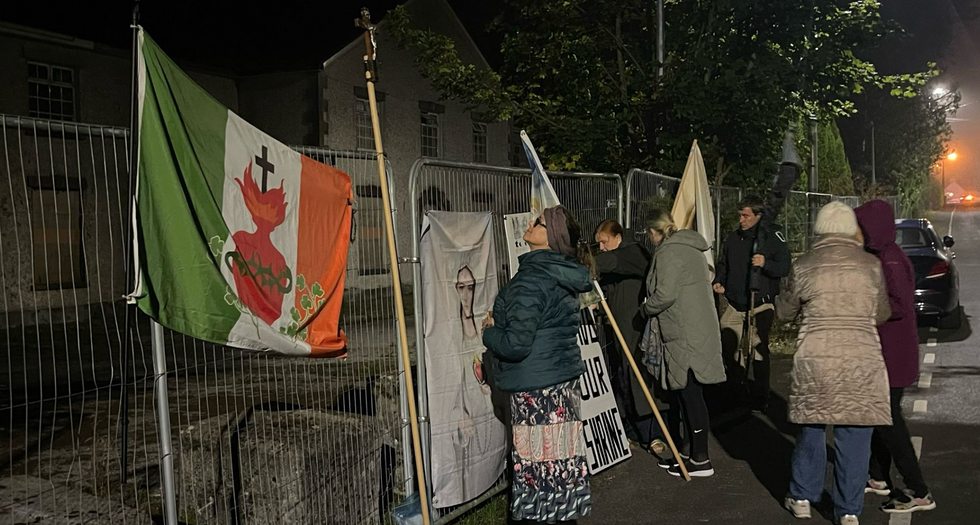
The residents of Knock fear being left in the dark about the plans for Belmont hotel
|Citizens Concerns Ireland
It speaks volumes that the country's elites are now acknowledging it.
Since leaving office, former Taoiseach Leo Varadkar has said publicly that immigration numbers have risen too quickly in Ireland.
“The majority of people think that the numbers have been too big in recent years, and they’re right. A country of five million people seeing its population rise by two per cent a year, which is what’s happening at the moment, is too fast,” he told University of Notre Dame’s college newspaper during a recent visit to the United States.
This "open-border policy", as Mr Hermann puts it, is causing ructions in small towns and villages across rural Ireland.
From north to south, locals are pushing back against what they see as a lack of consultation about planned IPAS centres, which spring up in former hotels, guesthouses, hostels, and other buildings originally used for different purposes.
Examples abound.
Take a two-hour drive south of Knock and you'll find the Dundrum House Hotel in the rural county of Tipperary.
In May, a Tipperary Councillor decried what he said was a lack of consultation over the imminent arrival of up to 80 international protection applicants to the Dundrum House Hotel.
“I was made aware of rumours circulating about International Protection Applicants coming to Dundrum House Hotel,” said Cathaoirleach of Tipperary Cahir Cashel Municipal District, FG Cllr Declan Burgess.
The Tipperary Councillor immediately began an investigation to determine exactly what was going on and to his dismay, the Department of Integration had revealed no information about the incoming arrivals.
“The community of Dundrum has warmly welcomed hundreds of Ukrainian refugees to its area and have looked after them extremely well.
“I have heard that 80 refugees are expected to arrive in Dundrum in the coming days,” he said.
“The lack of clarity and communication is again deeply concerning."
In August approximately 70 asylum seekers, women and children, were transferred from Dublin to the facility.
Protestors have maintained a 24-hour presence at the gates since May.
Head further south and you'll find more unrest.
Government plans to use The Wallis Arms Hotel in north Cork as accommodation for IPAs and Ukrainian refugees have been met with local resistance.
Residents in Millstreet hoped the seven-bedroom property would be bought and return to operating as a hospitality business but this has been dashed as it appears the premises will not be reopened as a hotel.
Instead, it is being considered as a new location for people seeking international protection in the future.
The move appears to contravene the government's latest IPAS strategy, announced in March.
The strategy aims to increase bed capacity to 35,000 by 2028.
Announcing its new reforms, the government also said: "It is the intention of this new strategy to end the use of unsuitable accommodation options currently relied upon, such as the sole hotel remaining in a given town."
John O’Sullivan, a local mechanic who ran for Sinn Féin in this year’s Local Elections, told The Corkman there is “genuine anger” about the plans to use the historic Wallis Arms as a centre for IPAs amongst local residents, who feel their perspectives have been ignored.
“There was no discussions with the community. Everybody was in the dark about it,” Mr O’Sullivan said.
Similarly, members of the community action group “Kilrush Says No” in County Clare say they were not consulted about plans to house 27 single males in a disused BnB in their town and that the loss of the amenity – although recently not in operation – would have a detrimental impact on the local community and economy.
Last month, the Department of Integration confirmed that IPAS has leased the Central BnB for a period of one year.
However, it added: "It is not possible to say with certainty what the length of stay will be having in regard to the number of people applying for international protection arriving in Ireland and the scarcity of alternative accommodation."
The same grievances are being heard in villages and towns across rural Ireland.
The lack of communication is one thing, the lucrative contracts handed out to hoteliers is another.
Official figures published by the DCEDIY last month revealed the owners of the D Hotel in Drogheda on the east coast have received three payments totalling €5.4 million in the second quarter of this year for housing asylum seekers.
It comes after locals protested against the 500-room hotel accommodating the asylum seekers in February.
The published payment list shows this is just the tip of the iceberg.
Accommodating immigrants is now boosting companies and businesses' coffers to the tune of €6,000,000, figures show.
"We're essentially making a lot of people rich who are hotel owners, contractors who are providing food and accommodation and education to all these people. You're making a lot of people rich," Mr Boylan said.
"Do you think you're spending taxpayer money that we will ever get back?" He asked rhetorically.
The talk show host claims that the arrangement encourages bad incentives and a "race to the bottom" as more and more hoteliers will be tempted to enter the market.
He told GB News: "I know people who are buying properties. I know one person buying an old golf course and a clubhouse. He's buying it with a view that the government will rent it off him for the next five years. Who's going to turn that down?"
GB News has put this claim to the Department of Integration but is yet to get a response.
The Irish Government's new reforms signal a move away from reliance on private providers, setting itself the target of expanding its state-owned beds to 14,000 by 2028.
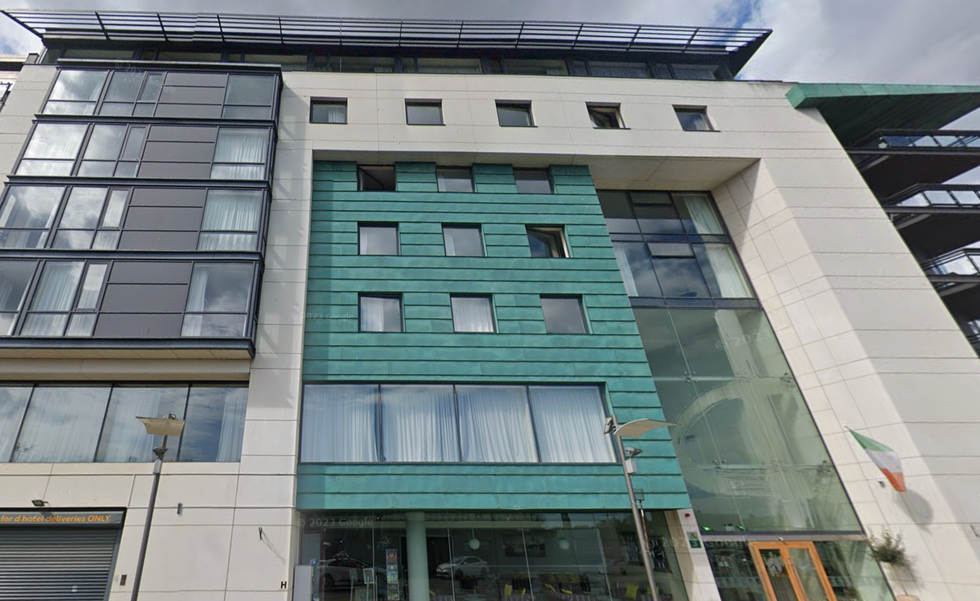
the owners of the D Hotel in Drogheda on the east coast have received three payments totalling €5.4 million
|In the meantime, Mr Boylan says it's killing the tourism industry.
It's important to acknowledge that myriad factors can affect the tourism market so the impact of immigration is hard to measure. However, what cannot be argued is the numbers - and they are down.
Visitor volumes are down in all regions of Ireland and all markets this year compared to the last.
In July 2024, tourism nights were down six per cent on last year, according to research published last month from Fáilte
Ireland. More than 50 per cent of those industry providers had fewer customers this summer than last, with 23 per cent reporting similar levels and 24 per cent recording more, the national tourism development authority found.
Tellingly, the cost of tourist accommodation and a lack of tourist accommodation were cited as contributing factors by more than four out of every ten respondents respectively.
When a town's sole hotel is turned into an asylum accommodation, as in the case of The Wallis Arms Hotel, it's easy to see how it could push prices up.
According to Messrs Boyle and Kelly, the national scheme is also exacerbating the Republic of Ireland's housing crisis.
Research from Savills published in August shows that for every new home delivered in Ireland, four new people are being added to the population.
The study compares Ireland to eight other advanced Western nations across a range of key housing metrics – population, housing supply, house prices, rents and affordability.
The report notes that while immigration has inflated the numbers, it doesn't solely explain why the market is running hot - the country also has “by far” the highest natural population growth in Europe.
Barring radical reform to the planning system, the housing crisis will worsen in the coming decades.
According to the CSO, Ireland's population could reach between 5.7 million and 7.5 million by 2057, depending on the net migration rate.
The strongest argument for increased immigration into Ireland is the benefit to the economy. But do the economics stack up?
Immigration provides significant economic, social, and cultural benefits to the island of Ireland, but it also brings challenges.
It is hard to obtain specific data on how levels of immigration are directly impacting the Irish economy.
A 2018 study, published in Science Advances, found that asylum seekers do not negatively impact the economic performance of host countries.
The study's findings are based on data from 15 Western European countries between 1985 and 2015. The study concluded that the increase in public spending to support asylum seekers is offset by an increase in tax revenues.
Research published last year by the ESRI and the Department of Taoiseach’s Shared Island Unit suggests it's a net positive but it's not without challenges.
The joint research examined how migrants are faring in employment and education in both Ireland and Northern Ireland.
It used the latest comparable national and international survey data and insights from a consultation event with migrants and migrant organisations in October 2022.
Among the highlights was that in both jurisdictions, most migrant groups were found to be highly skilled and more likely to have third-level qualifications than the native-born population, though the skills profile of migrants was generally higher in Ireland than in Northern Ireland.
Migrants in both jurisdictions also had high employment rates, particularly EU migrants.
Furthermore, a higher proportion of migrants in both jurisdictions were found to work in professional/managerial jobs than non-migrants.
However, this does depend on where a person is coming from and is the impact it has on the livelihoods of native-born citizens is an open question.
For example, immigrants may take jobs from native-born workers, which can depress wages for both groups, especially in low-skilled professions.
This can inflame local tensions.
ESRI research found that non-Irish nationals earned 22 per cent less per hour than Irish nationals from 2011–2018. However, the wage gap decreased over time, from 25.5 per cent in 2011–2013 to 18.7 per cent in 2016–2018.
To understand the negative effects of low-skilled mass immigration, look to the continent.
Recent research found that in Denmark, Sweden, Germany and other countries, mass immigration through low-wage, low-skill and non-European migration from the Middle East and Northern Africa has come at a net fiscal cost to their respective economies.
For Denmark, a study called ‘Immigration, Integration and Fiscal Sustainability’ from 2005 predicted that increased immigration would “generally worsen” the Danish fiscal sustainability problem.
The study by Poul Schou used the large-scale computable general equilibrium model Dream to examine the consequences of various immigration scenarios.
Ultimately, the report found that “increased general immigration will not solve the demographic problems of the ageing welfare”.
However, it argued that improved integration of existing and future immigrants could be an “important tool” to ease future financing problems.
High unemployment rates can also depress the economy and here the data on immigration is a little more concrete.
The latest CSO 'Arrivals from Ukraine in Ireland' data showed that 17,702 Ukrainians were employed in Ireland out of the 57,672 Ukrainian adults with active PPSN numbers, just over 30 per cent.
The survey of just over 4,600 people cited language, refugee stigma and a lack of public transport among the barriers to employment.
As of December 2023, the employment rate for non-EU citizens in Ireland aged 20–64 was 76.9m per cent, according to Trading Economics, which uses historical data and forecasts.

Research suggests migration is a net positive to the economy but it's not without challenges
|Getty Images
The economy is only one piece of the puzzle.
Other externalities must be considered, such as crime and the cultural disharmony immigration brings to local communities.
The Garda insists that there has been no significant increase in crime statistics as a result of the increase in asylum seekers arriving in Ireland.
Mr Kelly vehemently disagrees with this assessment, adding that it doesn't make you "far-right" to do so.
Mr Kelly blames "EU free movement and open borders" for allowing immigrants to "waltz in from all across Europe here. No questions asked".
For him, it's not so much the economy but the country's religious values that are under threat.
"Christianity is the centre of Irish culture and nature abhors a vacuum," he warned.
The resistance
Locals are pushing back against what they see as uncontrolled immigration into Ireland. Citizens Concerns Ireland (CCI) are among those leading the charge.
The tight collective of predominantly women has moved away from a protest movement and is now trying to influence public policy.
"We engage more with awareness campaigns and highlighting the blatant flagrancy of the law and the disregarding of Garda protocol. We are trying to use the justice system in our favour. We have some electoral candidates and a variety of people from all backgrounds with a unified goal to keep our country safe," two spokeswomen from the CCI told GB News.
They chose to remain anonymous due to "personal safety, both for us and our families, as Ireland is very volatile at the moment".
From a humble party of two protesting on the side, the CCI has become a 40-strong collective that's attempting to affect change in every county of Ireland.
When your correspondent asked the women what motivates them to speak up and risk the personal and professional costs that come with it, one of them replied: "I always say to people, when you have a big decision to make in life, the one thing I always ask myself is, or any decision if I'm going to get stressed to go: 'will this affect me in five years?'"
For these women, the question is a rhetorical one. They cite many of the same concerns we explored above, such as exacerbating the housing crisis and destroying local culture, which drives tourism to the country.
For them, the economics only make sense for the arrivals - not locals.
"The analogy I use when I speak to people is: 'Imagine you had a three-bedroom house, and you and your husband had four children in the three-bedroom house. Then imagine you have four more children. Now you have no more money to feed the four more children. You're not putting an extension on your house.' That's exactly what's happening. We don't have any more resources. The pot is empty," one of the women told GB News.
The CCI is mindful of how toxic the culture wars have become and actively distances itself from the extremes on either side of the debate.
It's a difficult line to tread but a necessary one if the collective is to be taken seriously.
It remains to be seen whether this even-handed approach will work as local politicians regard the CCI as persona non grata.
"Our councillors are not communicating directly with us. They will only go through these NGOs, and we can only get invited to certain meetings through our councillors," the spokeswomen said.
Still, the counter movement in rural Ireland is becoming increasingly coordinated.
Mr Kelly reckons two factors are driving this unified response: the pace of change and "cultural opposition to colonisation".
He explained: "What distinguishes Ireland from Britain, France or Germany is that we do not have any type of post-colonial guilt complex that the left can shove down our throat. So we don't feel any obligation at all to uphold the right that people come and try to take over our country."
Mr Boylan acknowledges that there are "some racists" among these protests "but generally we're not racist".
He explained: "The vast majority of people are just concerned citizens. Concerned about their safety; concerned about the idea of the population increasing, particularly in small towns and concerned about a different culture coming into their area who they're not familiar with. It's just genuine concerns.
"You could allay those concerns if you actually communicate with people,"






